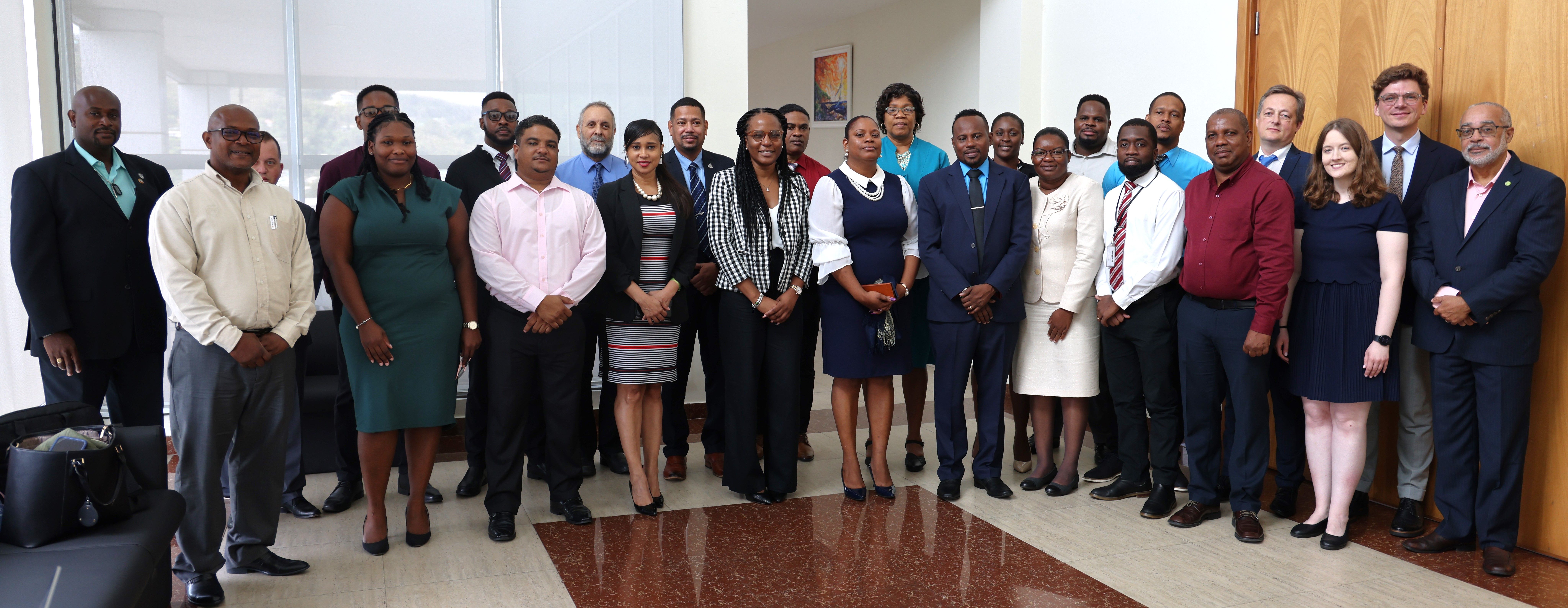New Plans for Improved Cybersecurity in the OECS with Caribbean Digital Transformation Project
OECS Media Release
To strengthen the region’s digital security, the Caribbean Digital Transformation Project (CARDTP), implemented by the OECS Commission and funded by the World Bank, hosted a consultation workshop to establish national Computer Incident Response Teams (CIRTs) for participating member states. The workshop was a hybrid activity hosted by Saint Lucia from April 15 to 17, 2024.
Since its launch in 2021, CARDTP has been rolling out activities under two main pillars:
- The Digital Ecosystem addressing:
- telecommunications competition, affordability, and service quality
- the enabling environment for Digital Financial Services
- cybersecurity, data protection, and privacy
2. Digital Skills and Technology Adoption attending to:
- Advanced digital skills development
A CIRT is typically responsible for providing security against threats to information communications technology (ICT) systems for governments and the public sector through mitigation and identification. Caribbean countries show a relatively low commitment to cybersecurity with few having CIRTs, none of which are in the OECS. This heightens the security risks to the citizens and their human rights in cyberspace while hampering economic development and the ability to fully harness the benefits of a digital economy. These challenges are largely because of the region’s financial, legislative, technical, or skilled personnel resource constraints.
Director General of the OECS, Dr. Didacus Jules delivered remarks at the workshop’s opening ceremony,
“This consultation is on what is deemed in the public domain to be a very highly technical subject but also one that is of importance to every citizen and institution in the OECS that uses computers in any aspect of life.”
Referencing cybersecurity threats some OECS member states recently faced, Dr. Jules said,
“This is about safeguarding the privacy, integrity and security of every aspect of our digital lives. Lives which in today’s age of technology that are more often lived virtually than physically, especially with our youth.”
Having CIRTs in each country is crucial for protecting national assets, and they help foster a national culture of cybersecurity including by building awareness and resilience. The CIRT workshop was designed to address the “cybersecurity” CARDTP component with technical leadership from the Caribbean Community Implementing Agency for Crime and Security (IMPACS). For the workshop, the OECS Commission engaged NRD Cyber Security of the Republic of Lithuania to develop a CIRT establishment plans for Dominica, Grenada, Saint Lucia, and Saint Vincent and the Grenadines. The plan will reflect the common needs, requirements, and objectives of the beneficiary countries; details the services a national CIRT should provide; and outlines a CIRT’s governance and organisational structure, constituency, and necessary resources. It includes a step-by-step roadmap for establishing a national CIRT.
By the end of the workshop on April 17, member states were also able to assess their readiness for establishing a national CIRT and they discussed existing needs, gaps, and possible solutions. The CARDTP team will continue working with NRD Cyber Security to support member states while they work towards establishing national CIRTs.
—END—
The Caribbean Digital Transformation Project (CARDTP) is World Bank-funded and is being implemented by the Organisation of Eastern Caribbean States (OECS) Commission. It aims to ensure that every individual and business within the OECS region is empowered with access to broadband, digital financial services, and digital literacy skills needed to participate in an increasingly digital marketplace and society. CARDTP also supports the improved management of digital risks, the project will bolster cybersecurity policy, capacity, and planning tools in the region.
Claudia Mc Dowell
OECS Communications Unit






